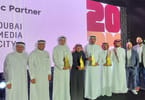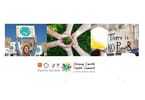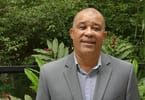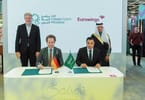There is no doubt that Africa remains one of the most natural resource-rich continent in the world. In the wake of competition for these resources, it is imperative that biodiversity – wildlife, in particular, is preserved for posterity. To manage these resources implies that governments, civil society and individuals must come together and ensure that the resources are used wisely so that the resource base (the natural environment) stays healthy and maximum returns are generated without negative impacts.
In doing so, the ideal situation would be the application of innovation in the management and conservation of wildlife processes in Africa. By comparative analysis, Africa’s human population is growing, and naturally, puts pressure and competition on the environment and available natural resources upon which community livelihoods are dependent.
It is in the nature of man that when confronted with an economic crisis and enticing markets, for instance, the exploitation of natural resources including wildlife – particularly the charismatic species such as the elephant, buffalo, rhino and other species, become primary targets. African Wildlife Foundation has stated that four-hundred and fifteen thousand elephant population is native to thirty-seven African countries. However, they face the greatest risk of being poached. Elephants carry their calves for twenty-two months. Cows usually bear only one calf every three to six years. Their regeneration rate averages five to six percent annually, compared to eight to nine percent poaching rates currently obtaining in Africa. This results in a net loss in population numbers and therefore creates an imbalance in the ecosystem. Thus, elephants are threatened with extinction if the current high rate of poaching continues unabated.
White rhino population in the continent according to WWF is approximately twenty-thousand and five-thousand for black rhino found in Africa with South Africa, Zimbabwe, Namibia and Kenya having the highest concentration. In the case of Zimbabwe, the highly and effectively managed Save Valley Conservancy top the list in terms of rhino conservation and management – and thanks to strict sustainable conservation by the twenty-two investors who in their wisdom in1992, pooled and put together their resources and created Save Valley Conservancy in Zimbabwe which is the biggest conservancy in Africa. The Conservancy is very rich in wildlife, diverse plant species, and amazing panoramic views of the richest ecosystems that the world has never known. The conservancy adjoins with the gigantic Great Limpopo Transfrontier Conservation Areas involving South Africa’s Kruger National Park, Mozambique’s Limpopo National Park and Zimbabwe’s Gonarezhou National Park.
Rhino is primarily targeted for some strange misconception of medicinal properties. The demand sprung from a misconception that rhino horn has medicinal value especially the rhino horn keratin, the same substance of our hair and fingernails – which in terms of science, do not work in the manner believed and portrayed in consumer markets of those products. Demand for this useless product has been driving up illegal trade in rhino horns for ill-conceived reasons – and therefore causing illegal poaching of this beautiful charismatic creature.
It is important that governments put their maximum efforts in conserving wildlife. At the centre of this process, is planning and putting in place sustainable conservation measures that involve local communities. The starting point would be to broaden the conservancy models that work inclusively, and the examples presented by Namibia and Zimbabwe’s Save Valley Conservancy, are great benchmarks.
Community awareness is key especially on the value of wildlife if successful conservation of wildlife is to be achieved. Additionally, there should be a demonstration of benefits to communities and this can best be attained by creating market-based conservation that gives emphasis on direct linkages between conservation results and economic returns. More importantly, those conservancy projects that are already in existence such as Save Valley Conservancy in Zimbabwe, should be preserved and supported in terms of government policy so that they continue to be the fulcrum supporting the environmental resource base on which wildlife lives and depend on integrally. Essentially, balancing the state of the ecosystem back to its full health and potential productivity is key to sustainability. To achieve these, some key primary aspects are required and urgent action is important.
One of the interventions is to immediately get the policy right in place, ensure that communities living adjacent to conservation areas respect the integrity of wildlife habitats – hence encroachment into wildlife areas should be restricted and or prohibited at all cost. And governments and the international community should commit to supporting the maintenance of pristine flora and fauna in existing and newly created conservancies, over and above already designated wildlife conservation areas. Financing expansion of the conservation projects and capacity building of communities and officials who manage these projects is important to increase the conservation base and sustainability of the projects.
It is important to note that wildlife resources should be actively used in an innovative, sustainable and equitable manner to enable rural communities to leverage wildlife to transform tourism development. Wildlife anchors tourism development and has global comparative advantages in terms of its downstream industries that are supported by wildlife. Coupled to this, is the proposition to come up with a cocktail of incentives that facilitate wildlife conservation within communities and ultimately, the empowerment of the people to manage their resources to generate significant returns while ensuring the long-term health of the resource base – the natural environment.
Dr. Darlington Muzeza is a Member of the African Tourism Board
WHAT TO TAKE AWAY FROM THIS ARTICLE:
- In the case of Zimbabwe, the highly and effectively managed Save Valley Conservancy top the list in terms of rhino conservation and management – and thanks to strict sustainable conservation by the twenty-two investors who in their wisdom in1992, pooled and put together their resources and created Save Valley Conservancy in Zimbabwe which is the biggest conservancy in Africa.
- More importantly, those conservancy projects that are already in existence such as Save Valley Conservancy in Zimbabwe, should be preserved and supported in terms of government policy so that they continue to be the fulcrum supporting the environmental resource base on which wildlife lives and depend on integrally.
- The demand sprung from a misconception that rhino horn has medicinal value especially the rhino horn keratin, the same substance of our hair and fingernails – which in terms of science, do not work in the manner believed and portrayed in consumer markets of those products.























